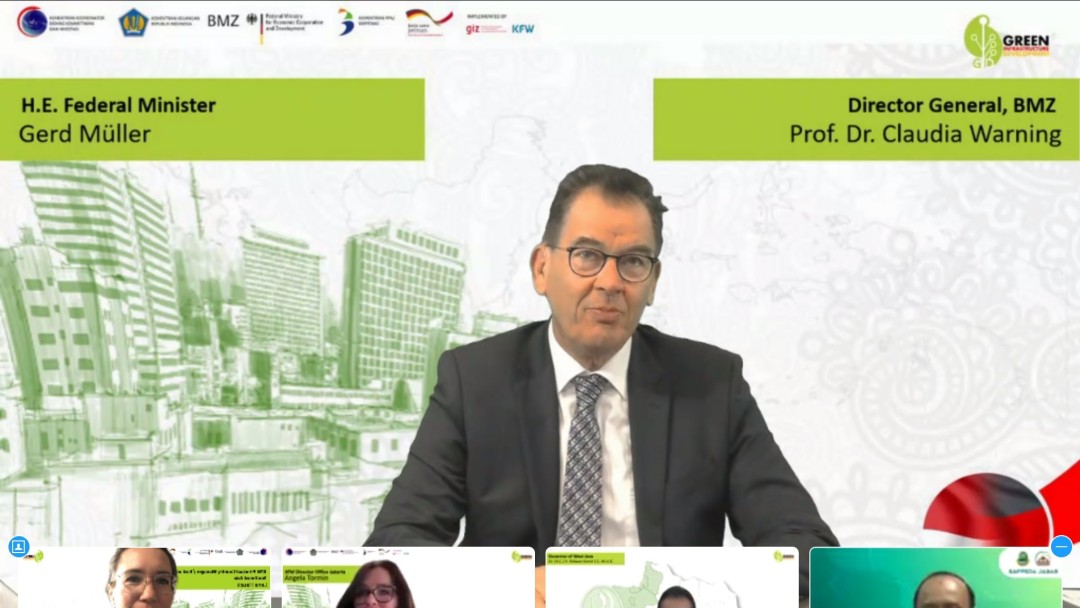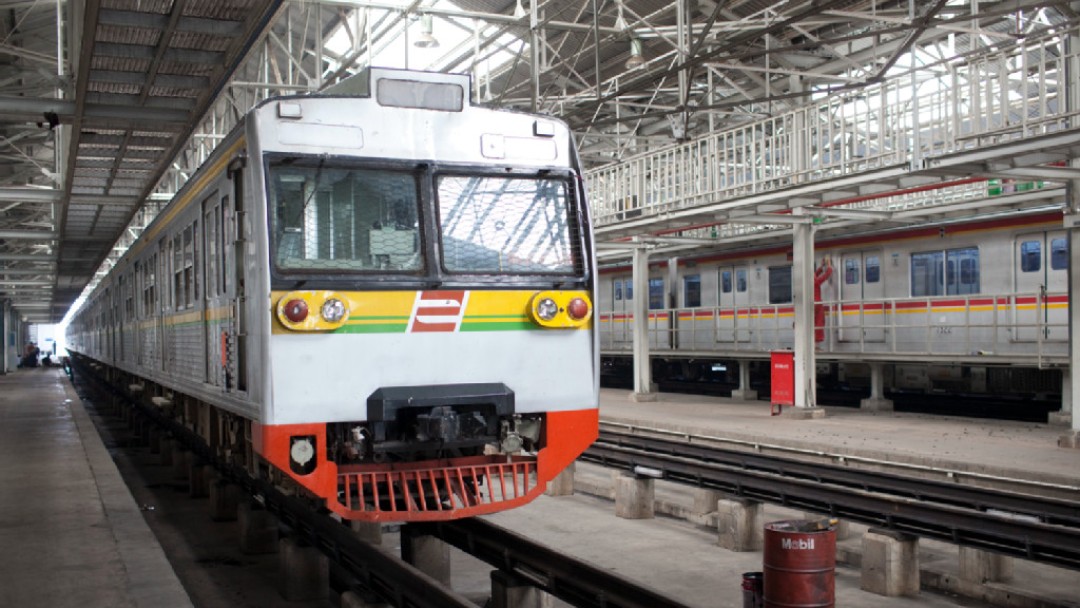News from 2021-03-04 / KfW Development Bank
Indonesia: KfW provides EUR 2.5 billion for German-Indonesian climate initiative

To mark the launch of the German-Indonesian climate initiative, Federal Minister Gerd Müller took part in the first meeting of the steering committee at the beginning of March together with high-ranking representatives of the partner country. KfW is providing EUR 2.5 billion for green infrastructure over five years on behalf of the German Government and is working closely with GIZ on the contents. The goal is to save up to 4.5 million tonnes of CO2 and other greenhouse gases annually.
The 17,000-island state of Indonesia wants to expand its infrastructure in a climate-friendly and future-oriented way. On behalf of the German Federal Ministry for Economic Cooperation and Development (BMZ), KfW is providing loans totalling EUR 2.5 billion to advance numerous projects in the areas of mobility, water/wastewater and waste management within five years.
At the launch event, which brought together German and Indonesian decision makers in a digital format at the beginning of March, Federal Minister Müller pointed out the particular threat posed by climate change to the Southeast Asian island state. Indonesia, with its many megacities, needs an infrastructure that is ecologically but also economically sustainable, he said.
Within the framework of the climate initiative, for example, the energy-efficient expansion of local public transport in Surabaya, a city of nine million people, is planned. A suburban railway line from the suburbs to the city centre is to be extended and will serve as the basis for the expansion of public transport. The 120-kilometre rail network is expected to connect up to half a million people daily to the central public transport system in a sustainable way. This investment alone would save up to 100,000 tonnes of carbon dioxide per year.
As one of its global partners, the BMZ is supporting Indonesia in the implementation of the programme, also known as the Green Infrastructure Initiative, which is intended to help achieve the national climate targets (NDC).

"Since 2011, KfW has already committed EUR 1.4 billion in climate-related financing in Indonesia. The initiative has the potential to double the CO2 savings impact of German development cooperation in the world's fourth largest country," emphasised Stephan Opitz, member of the Management Committee of KfW Development Bank.
Not only public transport, but also urban infrastructure in the areas of water/sanitation and waste management are being expanded. KfW has already provided a promotional loan of EUR 85.7 million for the development of the Wosusoka regional water supply system. There are also plans to expand the sewage network and a wastewater treatment plant in the city of Bandung.
The reduction and recycling of plastic waste is in the focus of a project already in preparation, which KfW is tackling together with the French AFD.
The German-Indonesian climate initiative is being implemented in close cooperation with GIZ, which is providing complementary advisory services with a financial volume of EUR 4.4 million. GIZ's tasks also include identifying potential infrastructure projects in close coordination with KfW and preparing them as part of a preliminary assessment. KfW will then enable these to be financed and subsequently implemented. "This form of cooperation based on division of labour and synergy is new: both institutions are cooperating with each other here in an exemplary manner," says KfW portfolio manager Olaf Goerke, who had been sent to Jakarta specifically to set up the climate initiative. "We will expand the KfW office in the country to match the dimensions of the programme and provide the necessary capacities."

Share page
To share the content of this page with your network, click on one of the icons below.
Note on data protection: When you share content, your personal data is transferred to the selected network.
Data protection
Alternatively, you can also copy the short link: https://www.kfw-entwicklungsbank.de/s/enzBWrMC.Cb1A
Copy link Link copied